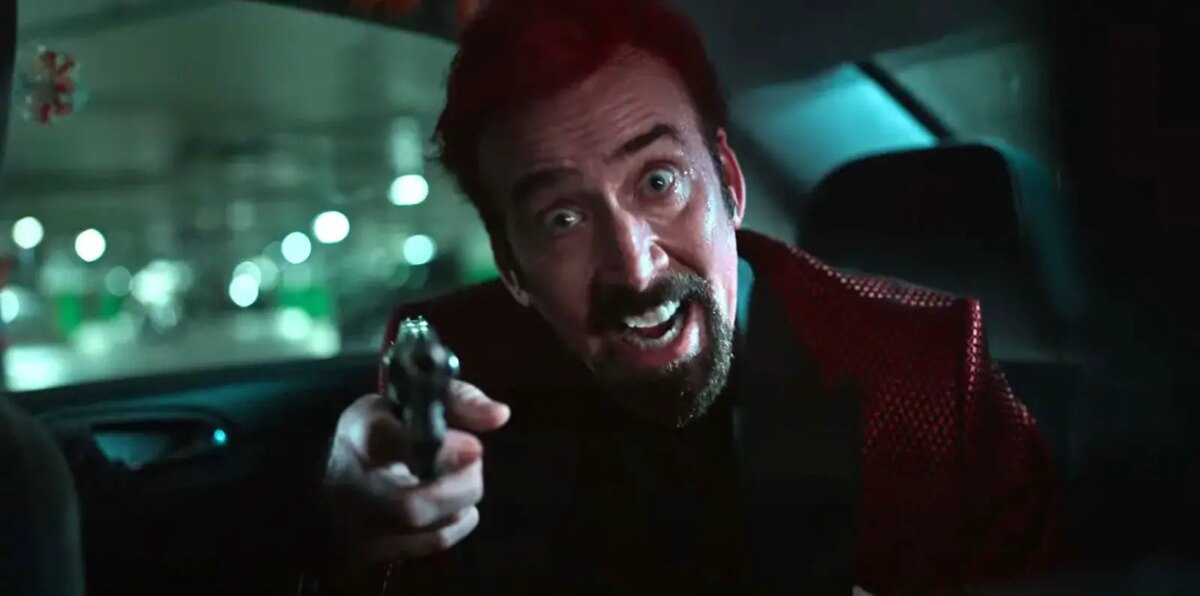
COMING TO THEATERS! Sympathy For The Devil, directed by Yuval Adler and written by Luke Paradise, credits its characters simply as The Driver, The Passenger, Cop, and so on. The Driver is actually given two different names as the thriller’s cat-and-mouse game goes on. The question of if either one of those names is who he really is and what the malevolent Passenger wants with him lingers during the lean 90-minute run time.
The Driver (Joel Kinnaman) has just dropped off his kid at grandma’s house and is now heading to his wife at the hospital. She’s in labor with their second child, and he wants to be there as soon as possible, as their boy’s birth had lots of complications. After parking and gathering a few items before entering, The Passenger (Nicolas Cage) enters the backseat. Though startled, the Driver calmly and rationally explains that he isn’t an Uber and asks the stranger to exit the vehicle. Then The Passenger pulls out a gun and tells The Driver to drive to a specific location.
Throughout the fraught nighttime drive, The Driver pieces together that The Passenger believes he’s a former associate of sorts — his claims to the contrary fall on deaf ears. However, things escalate during a routine traffic stop, and the Cop (Cameron Lee Pace) winds up dead. Now, The Driver must unleash his true self and become whoever it is The Passenger believes he is in order to survive.
“The Passenger pulls out a gun and tells The Driver to drive to a specific location.”
Near the end of Sympathy For The Devil, Cage gives a very compelling speech about why he’s doing all this to The Driver. While his reasoning isn’t that surprising, waiting so long to lay everything out generates great amounts of tension. Additionally, the screenplay does a superb job of keeping all watching guessing as to the true nature of The Driver. These two things, when combined with the effective direction, make for a thrilling joyride into the dangers of the night.
Cage is over-the-top, as only he can be. His frustrations at Kinnaman’s Driver interrupting him are hilarious and a little scary. The beloved, iconic actor plays into the malicious side of things well, never letting the audience know what he’s about to do. This only furthers the stakes. Kinnaman is, appropriately, more grounded but no less intense. He comes across as a caring husband/father and seems genuinely confused by what The Passenger wants from him.
Sympathy For The Devil is tightly wound and fraught. Sure, the character arcs have been done before, but the screenplay effectively uses these tropes. Cage and Kinnaman work well together, with the former being gloriously over-the-top and the latter keeping things grounded in a form of reality. All in all, this thriller works from beginning to end.














